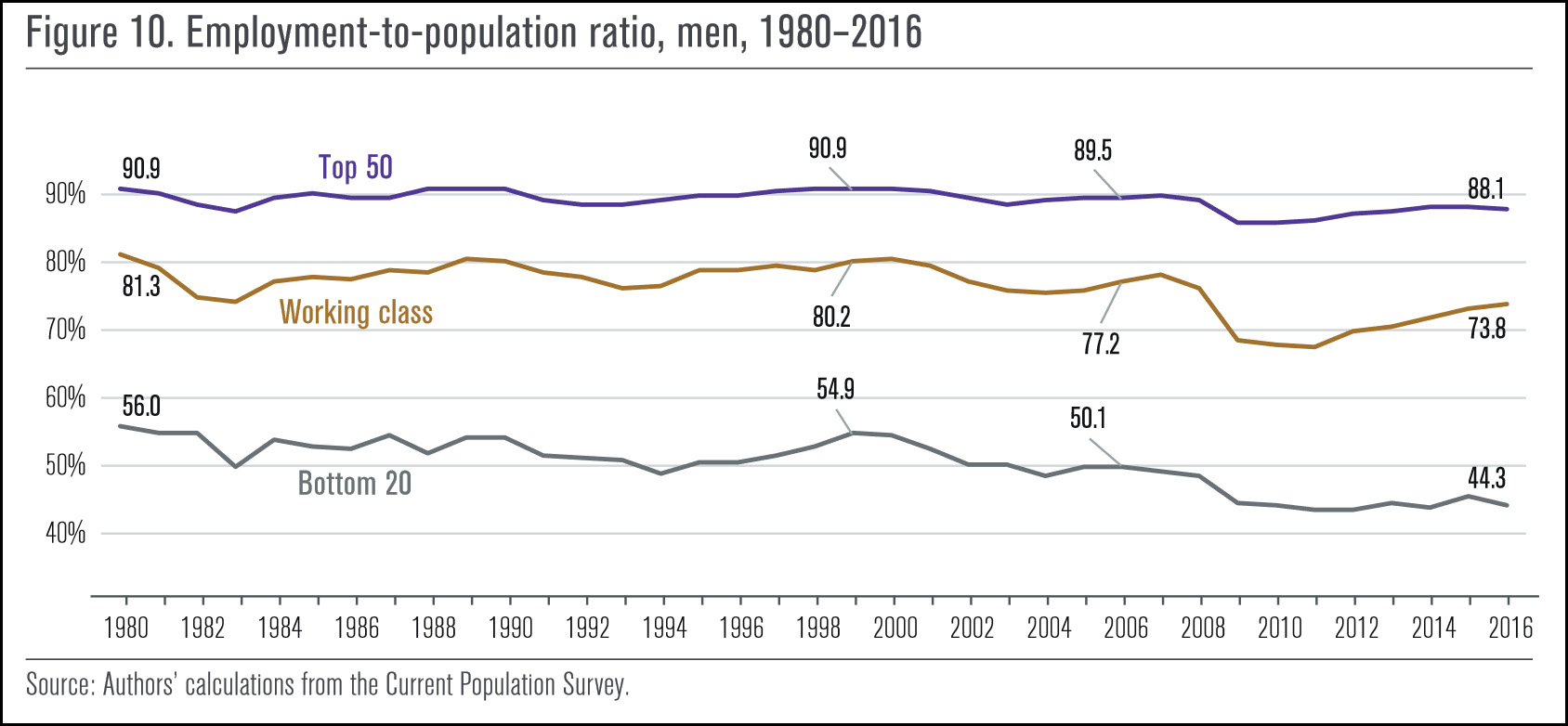Over at National Review, Michael Strain makes a very peculiar argument:
There is a growing consensus that the working class is in crisis following years of difficult economic change and due in part to their being ignored by Washington….I am struggling to find empirical support for this narrative when the working class is compared to lower-income Americans.
Over the past four decades, the average wage-and-salary income for the working class has consistently been more than double that of the poor. In 2016, 74 percent of working-class men were employed, compared to 44 percent of poor men. The rate of employment for the working class has fallen by 9 percent since 1980, compared to a drop of 21 percent among poor men. Both groups have seen significant drops in marriage rates. One-third of working-class women are single mothers, compared to 60 percent of poor mothers. Members of the working class are 25 percent more likely than the poor to participate in a religious organization.
Strain draws on data from a Brookings/AEI report published this year, which includes charts like these:




It’s true that these charts show that the poor are worse off than the working class. Of course they are—by definition. Metrics of income and education are how we define the two classes in the first place.
But all the evidence I’ve seen suggests that people simply don’t care that other people are worse off than they are. What the working class sees from these charts isn’t that they should thank their lucky stars they aren’t poor. What they see is that their incomes have been stagnant for 20 years; a lot more of them aren’t working; they’re getting married a lot less; and as a result they have to rely on government welfare a lot more. The fact that the poor have it even worse is no more meaningful than the fact that Vietnamese peasants also have it worse.
Strain has a longer version of this argument in Bloomberg today, which concludes like this:
Though the group’s struggles are real, the working class is not made of candy glass….They are not helpless victims of economic change, and should not be treated or discussed as such….Leaders should stop feeding them a narrative of victimhood and grievance. And at least some of the conversation about them should include how they can better help themselves.
Maybe so, but here’s the thing: unlike the poor, the working class votes. This political reality explains why politicians pay attention to them—at least a little bit—and nothing will ever change that. If you vote, you get things. If you don’t, you don’t.
And of course the real change in the American economy over the past few decades is the rise in the top 10 percent and especially the top 1 percent. Pitting the working class against the poor is just a way of evading the real conversation we should be having.













